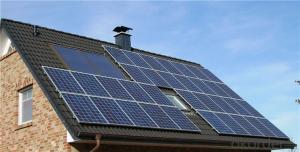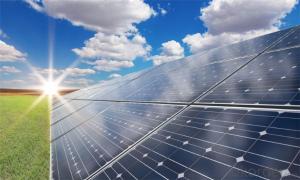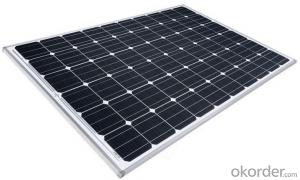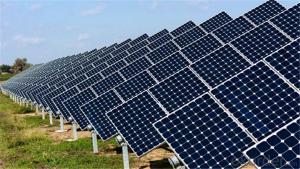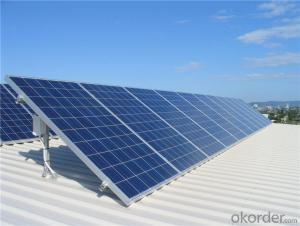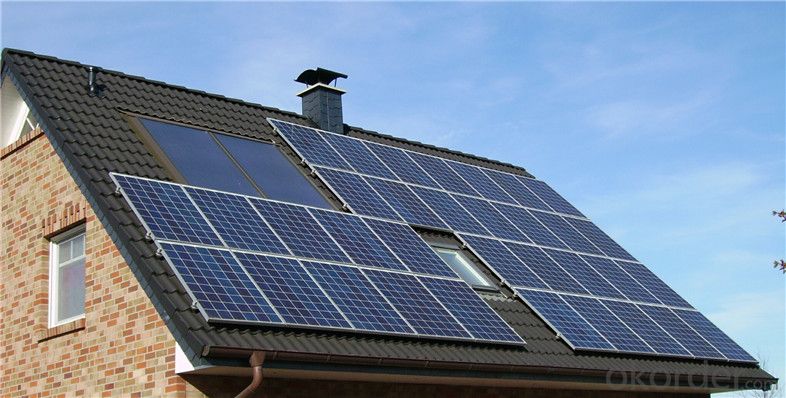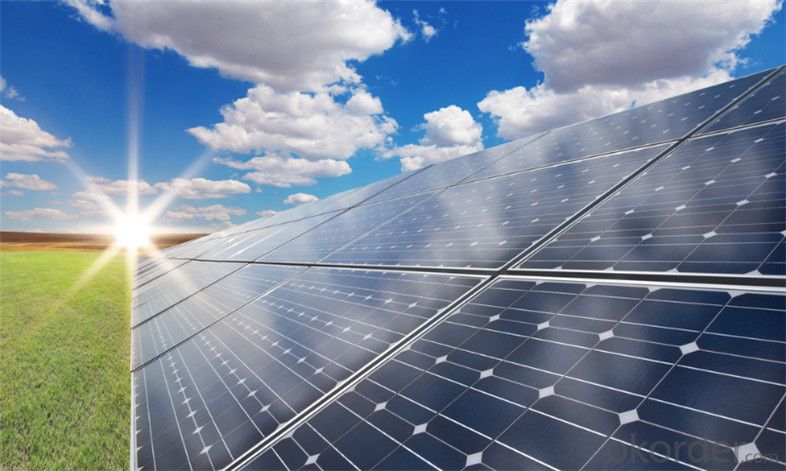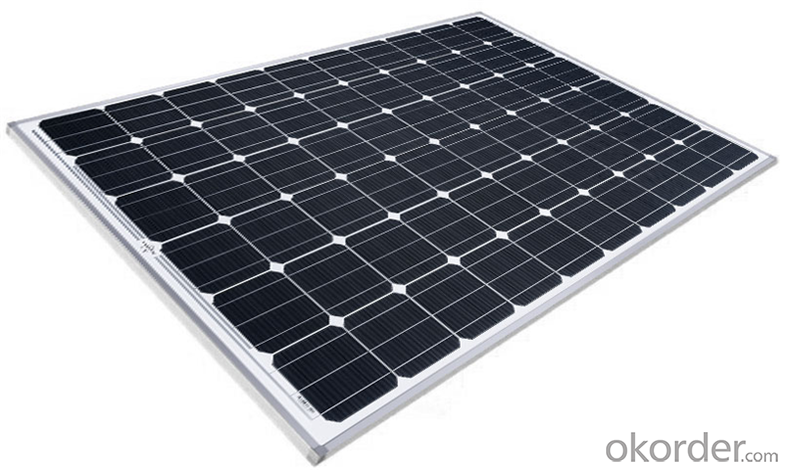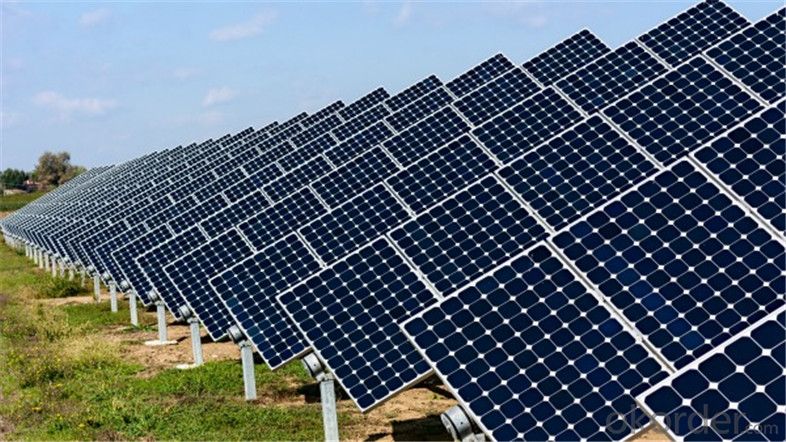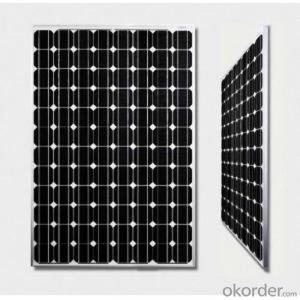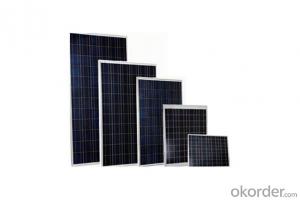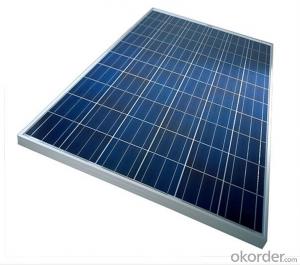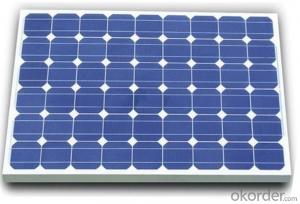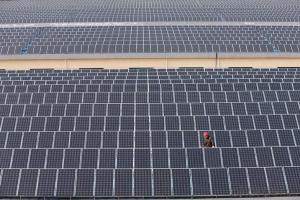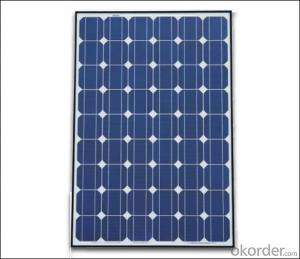Pfas Solar Panels 220Wp Special for Off-Grid Solar Power System Solares
- Loading Port:
- China main port
- Payment Terms:
- TT OR LC
- Min Order Qty:
- 700 watt
- Supply Capability:
- 20000000 watt/month
OKorder Service Pledge
OKorder Financial Service
You Might Also Like
Solar Panel 220Wp special for Off-grid Solar Power System Paneles Solares
Product Pictures
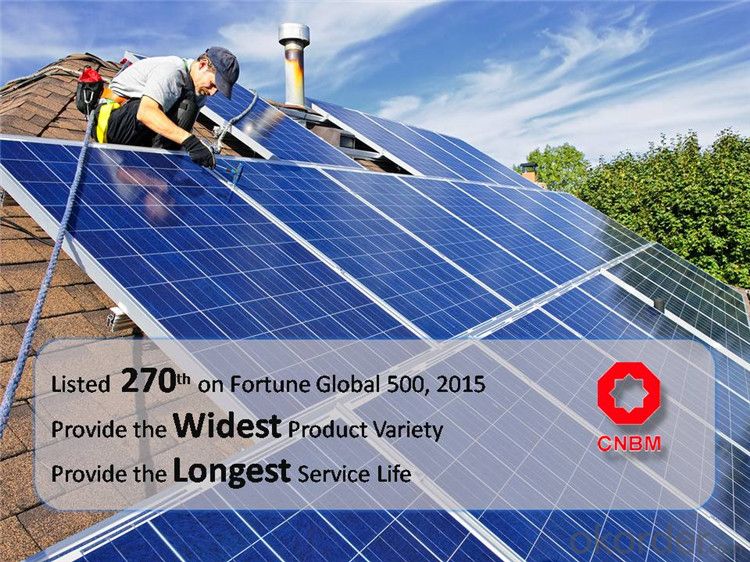
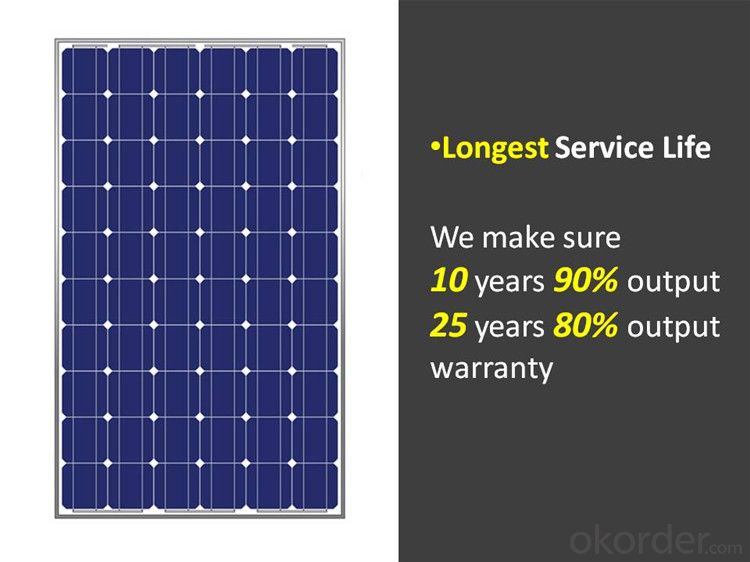
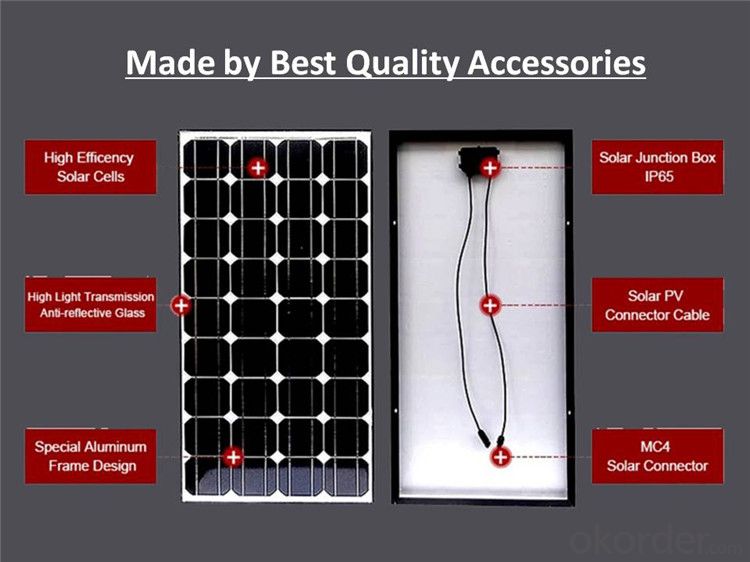
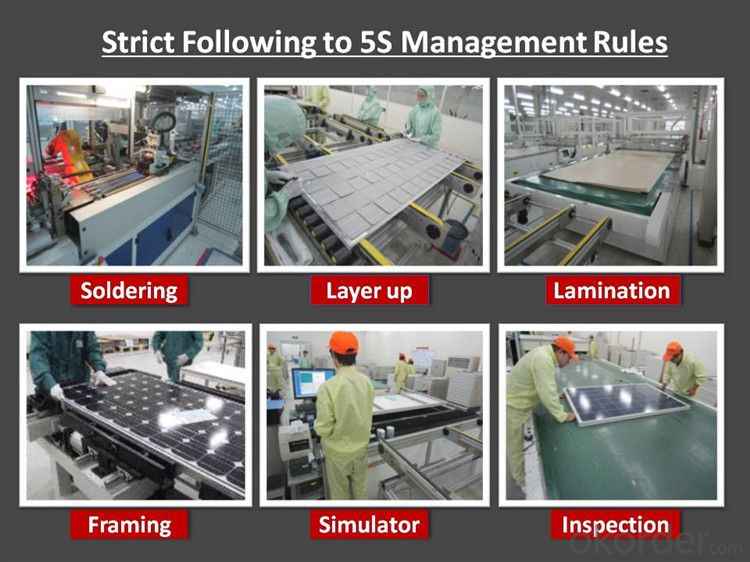

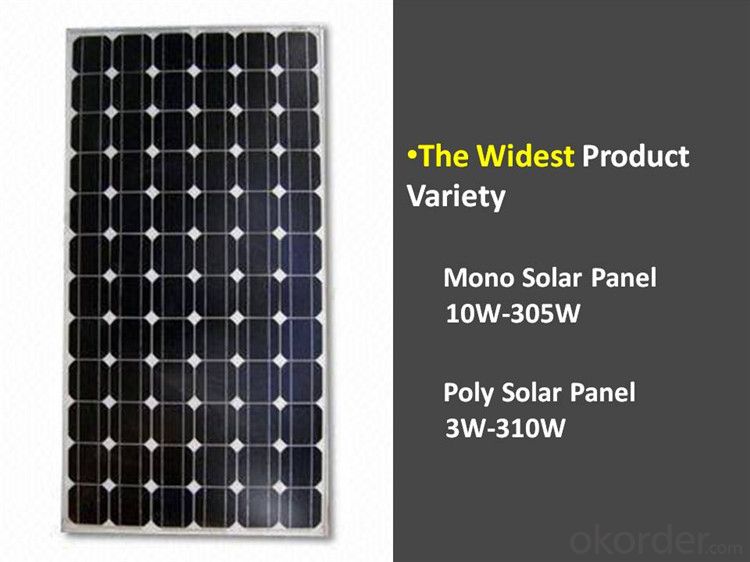
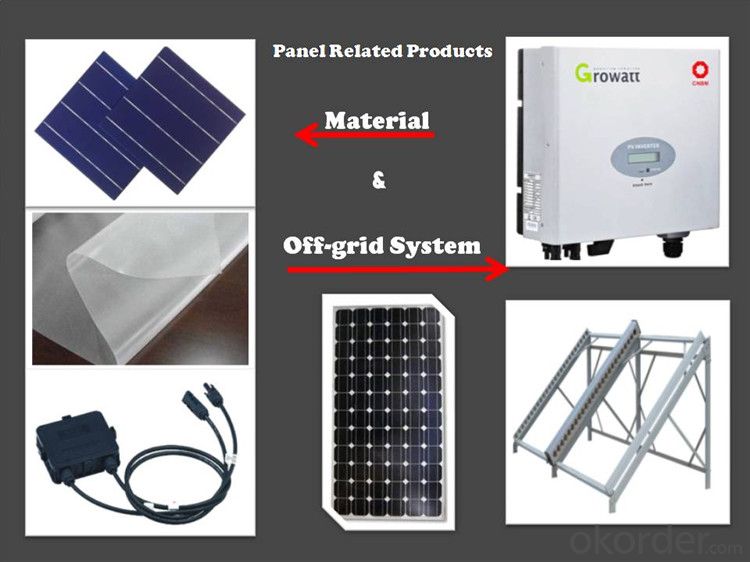
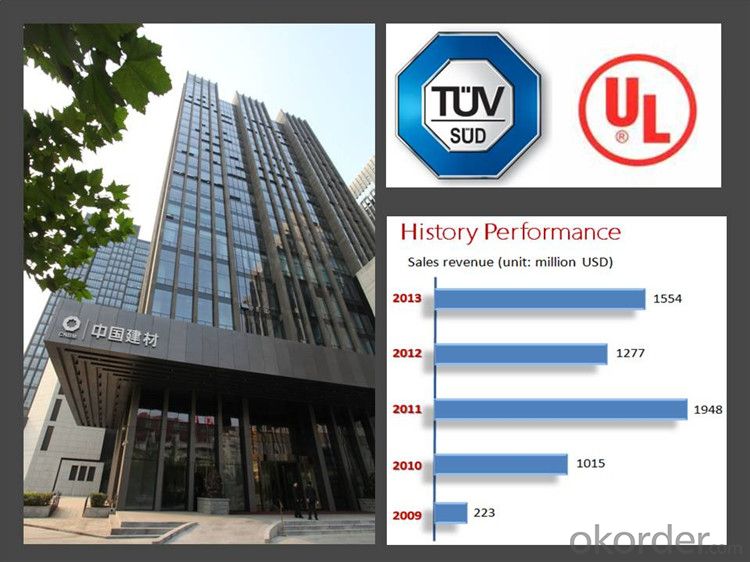
Mechanical Characteristics
Peak power (Pmax) | 10W |
Power tolerance | ±5% |
Max. system voltage | 1000VDC |
Open circuit voltage (Voc) | 21.4V |
Short circuit current (Isc) | 613mA |
Max. power voltage (Vmp) | 18V |
Max. power current (Imp) | 0.557A |
Cell Efficiency | >16% |
Standard Test Condition (STD) | Irradiance:1000W/m2;Cell temperature:25℃; AM:1.5 |
Operating temperature | -40 to+ 85℃ |
Applications
Commercial/ industrial building PV solar roof-top off-grid systems.
Residential PV solar roof-top off-grid systems.
Any commercial / industrial ground mount off-grid systems.
Other off-grid industrial and commercial solar PV applications.
Warranty
10 year limited product warranty on materials and workmanship.
25 year limited power warranty on power output.
≥90% power output assurance for 10 years and ≥80% power output assurance for 25 years.
Refer to warranty document for detailed warranty information.
- Q: What do I need to use this as a battery charger
- I hope this will help you choose your charge controller / battery charger more effectively. Good luck!
- Q: How do solar panels affect the property's community image?
- Solar panels can have a positive impact on a property's community image by showcasing a commitment to sustainability and renewable energy. They can enhance the property's reputation as an environmentally conscious and forward-thinking community, leading to increased respect and admiration from residents and neighbors. Additionally, solar panels can act as a visual symbol of progress and innovation, contributing to a positive perception of the property and potentially attracting like-minded individuals or businesses to the community.
- Q: Can solar panels be installed on a canopy or pergola?
- Yes, solar panels can be installed on a canopy or pergola. In fact, installing solar panels on these structures can provide dual benefits, offering shade and generating renewable energy simultaneously. This innovative approach allows for the efficient utilization of space and can be a great solution for homeowners or businesses looking to maximize their solar energy production while enhancing their outdoor living spaces.
- Q: what parts and tool do i need to build and connect a solar electric panel to my home
- Dear Matadora, Very good, good, good step to change your home electric supply to solar cell, because in long run, solar cell is cheaper. First you have to consider Power need for your house, eg. 200W, then you go to sellers and choose one with lowest price but best quality. After that you should assemble/attach your solar panel in place that gets most Sunlight, most probably in your roof. Attach them tightly, avoid burglar. Original solar cell current is DC. Current from solar cell placed first in several car batteries, so you could use electricity in night either. After that if your home appliances use DC, you could directly connect your appliances to batteries. But if your appliances need AC, current should be converted first from DC to AC use DC to AC converter. Car battery used to have 2 Volt DC. So if you need 220VAC, after DC converted into AC, then passed through transformer to increase voltage. Thank you very much Matadora.
- Q: are solar panels just a photodiode?A Photodiode converts light into either current or voltage? Right?
- yes. Any semiconductor junction will convert light into electrical energy, just shine a light at an LED (connect LED to voltmeter) and you'll see a small voltage produced (if you configure the meter as an ammeter it will develop a very small current). Solar panels are just VERY large surface photodiodes.
- Q: i would like to hook up a power outlet to a solar panelmy light system is 500watts will run for 8 hours/day between noon to 8PM.So what is the most effective system do I need?
- You will need at least 500 W of solar panels (probably more to cope with cloudy days), and a DC to AC inverter. Since you're going to 8pm you *may* want a battery bank system too for those shorter winter days.
- Q: I am looking to wire in some solar panels into my home. I already have plenty of wiring, and some solar panels around. I just need to know what I need to do to wire them into my home so I can lower my electric bill. This past month it was six hundred dollars.Can someone direct me to some information, or tell me how without telling me to hire some guy to come out to charge me thirty thousand dollars to install two or three thousand dollars worth of equipment?
- I am all for do-it yourselfers, I am one, but... Sorry to tell you, but connecting solar panels to grid power will require an electrician. There are many requirements for special disconnects to prevent harm to the utillity company workers that must be considered. You will also have to have an inverter sized to match your panels. The simple answer is to connect your panels to something specific, without connecting it into your house wiring. An example is to connect your water well pump to solar power and disconnect it from the grid. But you will still need an inverter and will need to calculate the power demands of the pump and the amount of power available from your panels, which varies by your longitude and latitude. It sound like a simple thing to do, but without special training and experience you will be sorry if you try this yourself.
- Q: How do solar panels affect roof warranty?
- Solar panels can potentially affect roof warranty, as their installation involves drilling holes into the roof and attaching the panels. This may void certain aspects of the roof warranty, especially those related to leaks or damage caused by the installation. It is important to review the terms of the roof warranty and consult with a professional installer to understand the specific impact solar panels may have on the warranty.
- Q: Due to erratic power cuts in my area I want to make up by using a 30watt solar panel. My decoder is 30watt but my TV is 70W. I need something small. I don't have problem with sound. Just picture.
- Do what we do when power is cut (although we have very reliable power - we loose as much as 2 hours a year), is go Amish. That is go without powered technology. Now, for you, you need more than a solar panel (and likely more than 30W, but that is a start) - you need a battery or set of batteries to store the collected power. 20Ah might do. You need an inverter to power things. For that, likely a 300W will do. For a TV, go shopping, and look at the labels on the back of the TVs. I just bought a 24 TV rated at 40W. If you get a 9 LED TV, it may be likely you can run that directly from battery, for many have separate DC brick supplies. With those, you can make a cable to power it directly from a 2V or so battery, if the supply can make 2 to 5V. Depending on your provider, you may be able to get a mini-decoder which uses a separate brick or wall supply, which means the decoder likely can be directly battery powered. Such a decoder may draw less than 20W.
- Q: I'm thinking of doing solar panel but i don't know how much they are i need help! please!
- no one has answered because you asked a question that cannot be answered. It is exactly the same question as how much is a car?. Do you want a passive solar heating panel, a solar electric panel, .5 Volts, ,000,000 BTUs, do you want just the panel or the panel installed and functioning, or what? the answer is between $5 and $5,000,000.
Send your message to us
Pfas Solar Panels 220Wp Special for Off-Grid Solar Power System Solares
- Loading Port:
- China main port
- Payment Terms:
- TT OR LC
- Min Order Qty:
- 700 watt
- Supply Capability:
- 20000000 watt/month
OKorder Service Pledge
OKorder Financial Service
Similar products
Hot products
Hot Searches
Related keywords
